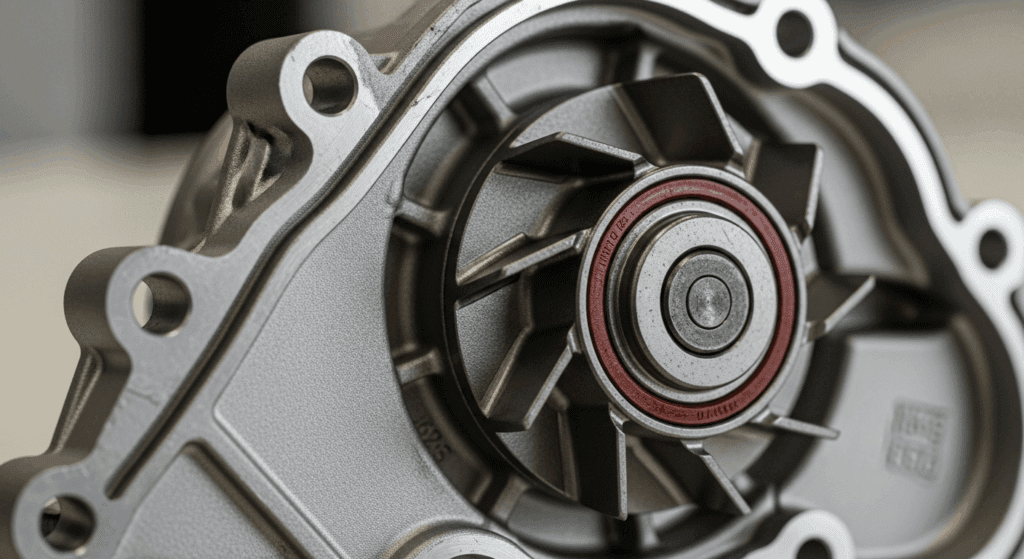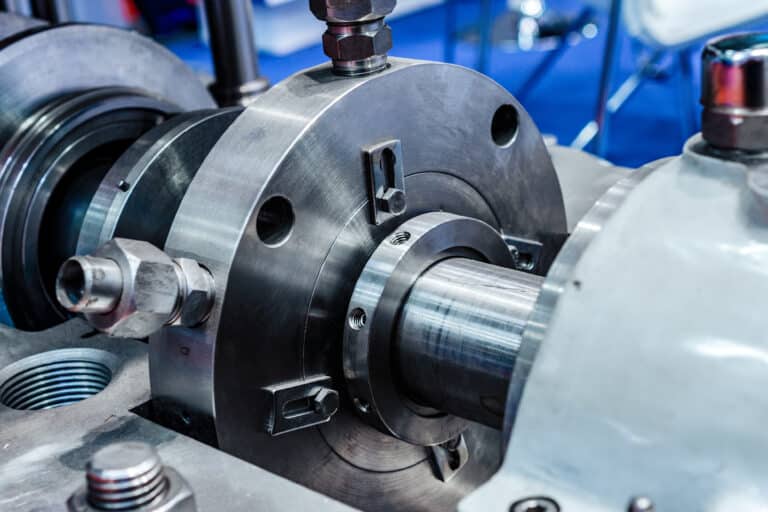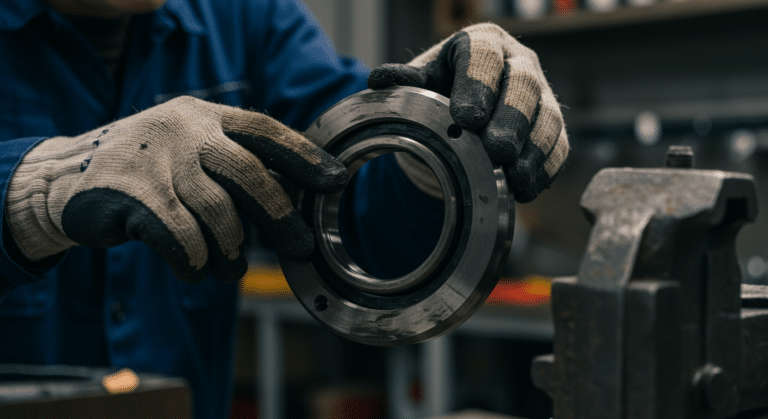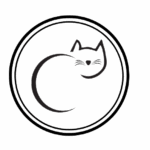A failing water pump makes three distinct sounds: a high-pitched squeal or whine, a deep grinding rumble, or rhythmic chirping. These noises signal that your water pump needs immediate attention before it fails completely and leaves you stranded.

The High-Pitched Squeal or Whine
A high-pitched squeal coming from the front of your engine means the water pump’s bearings are wearing out. This sound gets louder when you accelerate and might disappear at idle.
The squeal happens because the bearings inside the pump lose their lubrication. As metal rubs against metal, it creates that fingernails-on-chalkboard sound that’s impossible to ignore.
You might notice this noise is worse when you first start your car in the morning. Cold temperatures make the worn bearings even noisier until they warm up.
This sound often comes and goes at first. But once you hear it regularly, you’ve got maybe a few weeks before total failure.
The Deep Grinding or Rumbling
A grinding or rumbling noise indicates your water pump bearings have completely failed. This is the most serious warning sign, and you need to stop driving immediately.
The grinding happens when the pump’s impeller (the spinning blade that moves coolant) wobbles inside its housing. Metal parts are literally grinding against each other.
You’ll feel this sound as much as you hear it. Put your hand on the engine while it’s running, and you’ll notice unusual vibrations coming from the water pump area.
This grinding often comes with coolant leaks. Check under your car for puddles of green, orange, or pink fluid.
Rhythmic Chirping or Squeaking
Rhythmic chirping that matches your engine speed means the water pump pulley is misaligned or the belt is slipping. The sound speeds up when you rev the engine and slows down at idle.
This chirping usually starts after the pump shaft bearings wear down. The shaft develops play, causing the pulley to wobble slightly with each rotation.
Sometimes you can temporarily quiet this noise by spraying water on the belt. If the sound stops for a few seconds, you’ve confirmed the problem is in the water pump area.
The chirping might also happen alongside steam from under your hood. That’s coolant leaking onto hot engine parts—a clear sign you need repairs now.
FAQs
How long can I drive with a noisy water pump?
Stop driving immediately if you hear grinding sounds. With squealing or chirping, you might have a few days to a week, but continuing to drive risks complete engine failure from overheating.
Can I fix a noisy water pump myself?
Water pump replacement requires draining the cooling system and often removing the timing belt. Unless you’re experienced with auto repair, this job needs a professional mechanic to avoid costly engine damage.
What’s the average cost to replace a water pump?
Water pump replacement typically costs between $300 and $750, including parts and labor. The price varies based on your car’s make and model, with luxury vehicles costing more.
Will a bad water pump always make noise?
No, sometimes water pumps fail silently through seal deterioration, causing coolant leaks without noise. Regular coolant level checks and watching for puddles under your car helps catch these quiet failures.
Can I just add more coolant instead of replacing the pump?
Adding coolant only masks the problem temporarily. A failing water pump can’t circulate coolant properly, leading to engine overheating and potentially thousands of dollars in engine damage.




